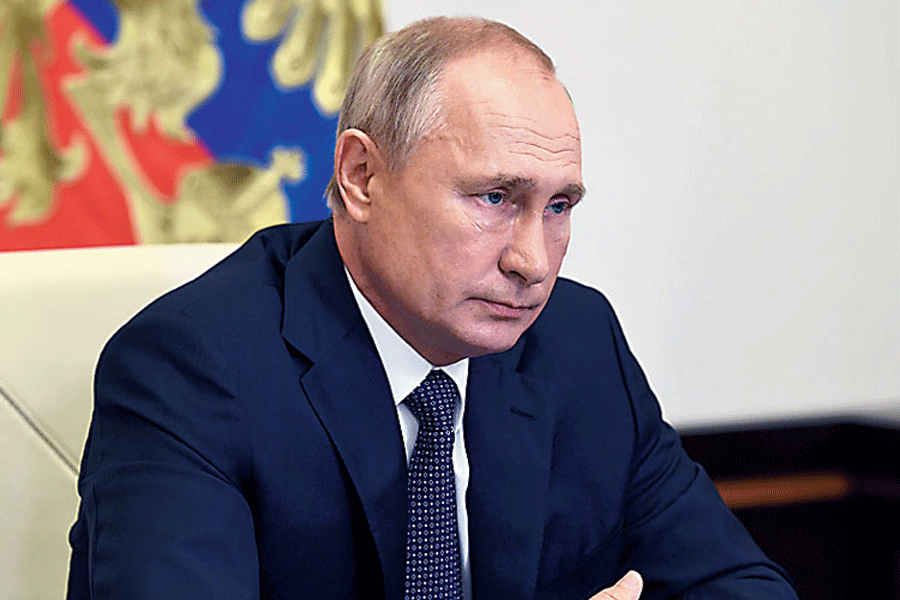For more than a year, American officials have quietly asked themselves a question they would not dare pose in public: Could Russia’s botched invasion of Ukraine eventually lead to the downfall of President Vladimir V. Putin?
For a few chaotic, head-snapping hours this weekend, the notion did not seem so far-fetched. But even with the apparent end to the immediate threat posed by Yevgeny Prigozhin’s rebellious mercenary army, the short-lived uprising suggested that Putin’s hold on power is more tenuous than at any time since he took office more than two decades ago.
The aftermath of the mutiny leaves President Biden and American policymakers with both opportunity and danger in perhaps the most volatile moment since the early days of the invasion of Ukraine. Disarray in Russia could lead to a breakdown of its war effort just as Ukrainian forces are mounting their long-awaited counteroffensive, but officials in Washington remained nervous about an unpredictable, nuclear-armed Putin feeling vulnerable.
“For the US, it’s advantageous in that the Russians are distracted and this will weaken their military effort in Ukraine and make them less likely to continue to instigate new problems in places like Syria,” said Evelyn N. Farkas, executive director of the McCain Institute for International Leadership and a former Pentagon official. “The main thing we care about is making sure that professional military remains in control of all of the nuclear facilities.”
The armed standoff on the road to Moscow, brief as it was, represented the most dramatic struggle for power in Russia since the 1991 failed hard-liner coup against Mikhail Gorbachev and the 1993 showdown between Boris Yeltsin and the parliament. Unlike those episodes, however, Washington did not have a favourite in the struggle. Prigozhin is no more a friend of the US than Putin.
Biden responded to the crisis by not responding, opting for caution rather than speaking out, which would risk giving Putin ammunition to claim this was all a foreign plot, which is often the first line in the Kremlin playbook whenever domestic trouble arises. Biden delayed his departure for Camp David to convene a secure video briefing with top advisers in the Ward Room of the White House — a makeshift Situation Room while the real one is being renovated — and also spoke with the leaders of Britain, France and Germany.
Jake Sullivan, the President’s national security adviser, cancelled a trip to Denmark meant to drum up support for Ukraine so he could accompany Biden to Camp David and conducted the planned meeting by video instead. Gen. Mark A. Milley, chairman of the Joint Chiefs of Staff, likewise scrubbed a visit to Israel and Jordan. But other than reiterating American support for Ukraine, the administration remained silent, letting events play out while officials studied the intelligence for insight into what was happening.
US officials were paying special attention to Russia’s nuclear arsenal, nervous about instability in a country with the power to wipe out most of the planet. But a senior administration official said the government detected no change in the disposition of Russia’s weapons and did not change America’s nuclear posture either.
“It’s pretty fast-moving, so it’s hard to know where we will end up, but the two big issues for the US are the command and control over the nuclear weapons and the implications for the Ukrainian efforts to liberate more territory,” said James Goldgeier, a professor and a specialist on Russia.
Andrea Kendall-Taylor, a longtime Russia intelligence analyst now at the Center for a New American Security, said the US had limited capacity to influence events there and should focus on preventing spillover violence and disorder.
Kurt D. Volker, a former ambassador to Nato and special envoy for Ukraine, said the Prigozhin revolt spells the beginning of the end of the war and Putin’s tenure, even with the deal that short-circuited the march on Moscow.
“Don’t trust the reversal,” he said. “This is positioning. Prigozhin wants to be seen as a hero for Russians while he lines up more support and makes demands. The state will go after him and that can be his excuse for ‘reluctantly’ defending himself.”
As Volker put it, there will be “many more shoes to drop”.
New York Times News Service











